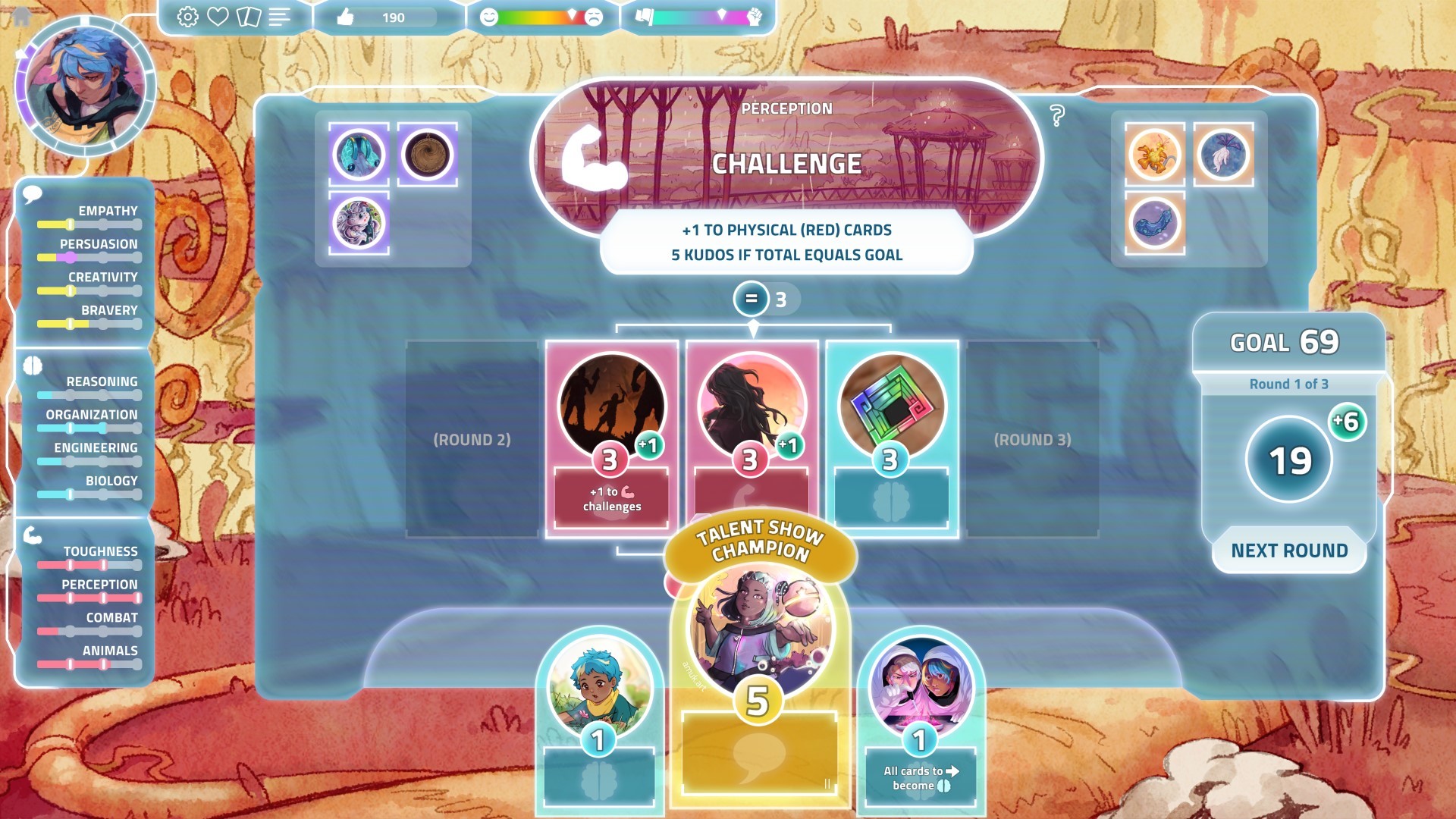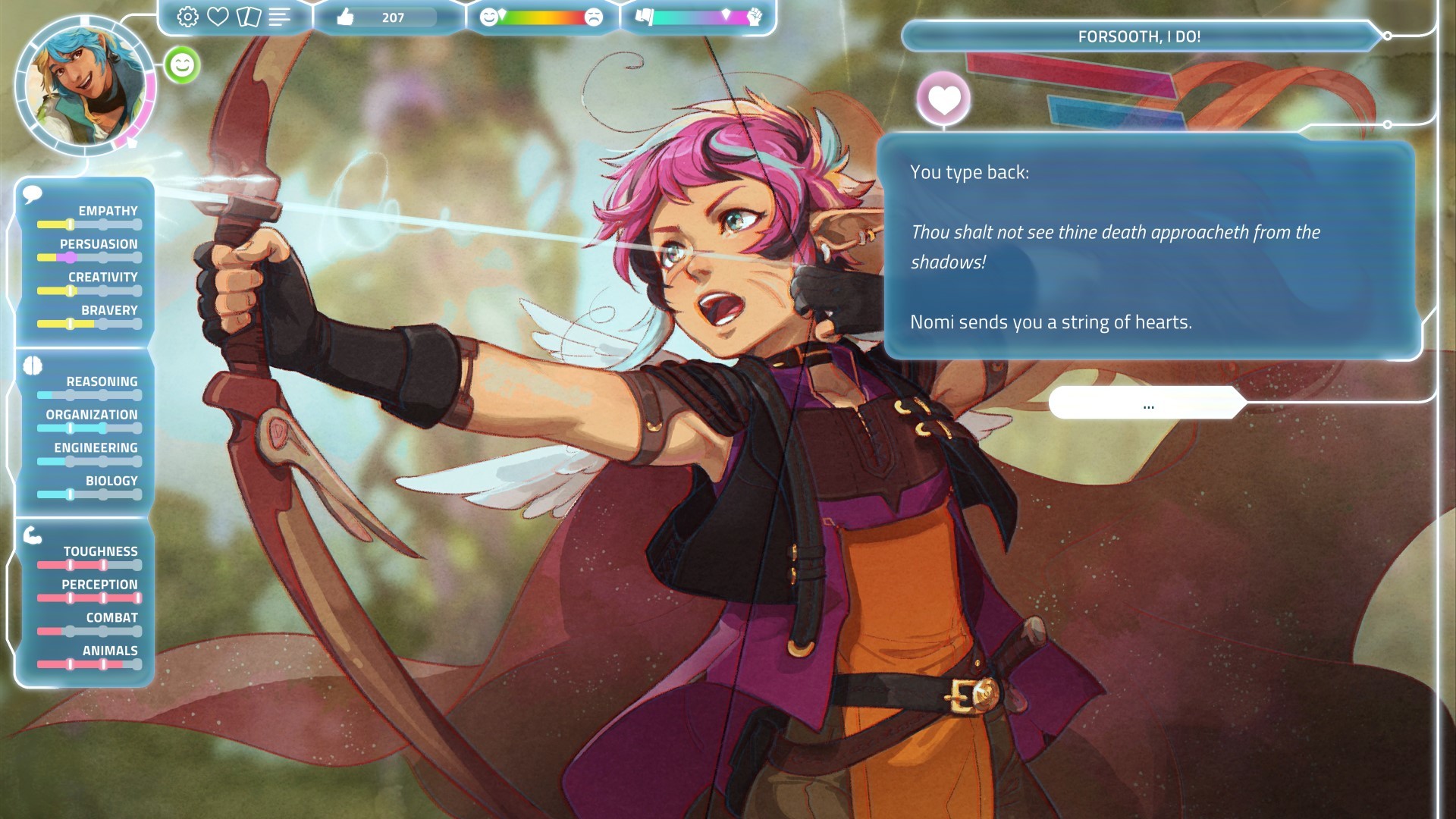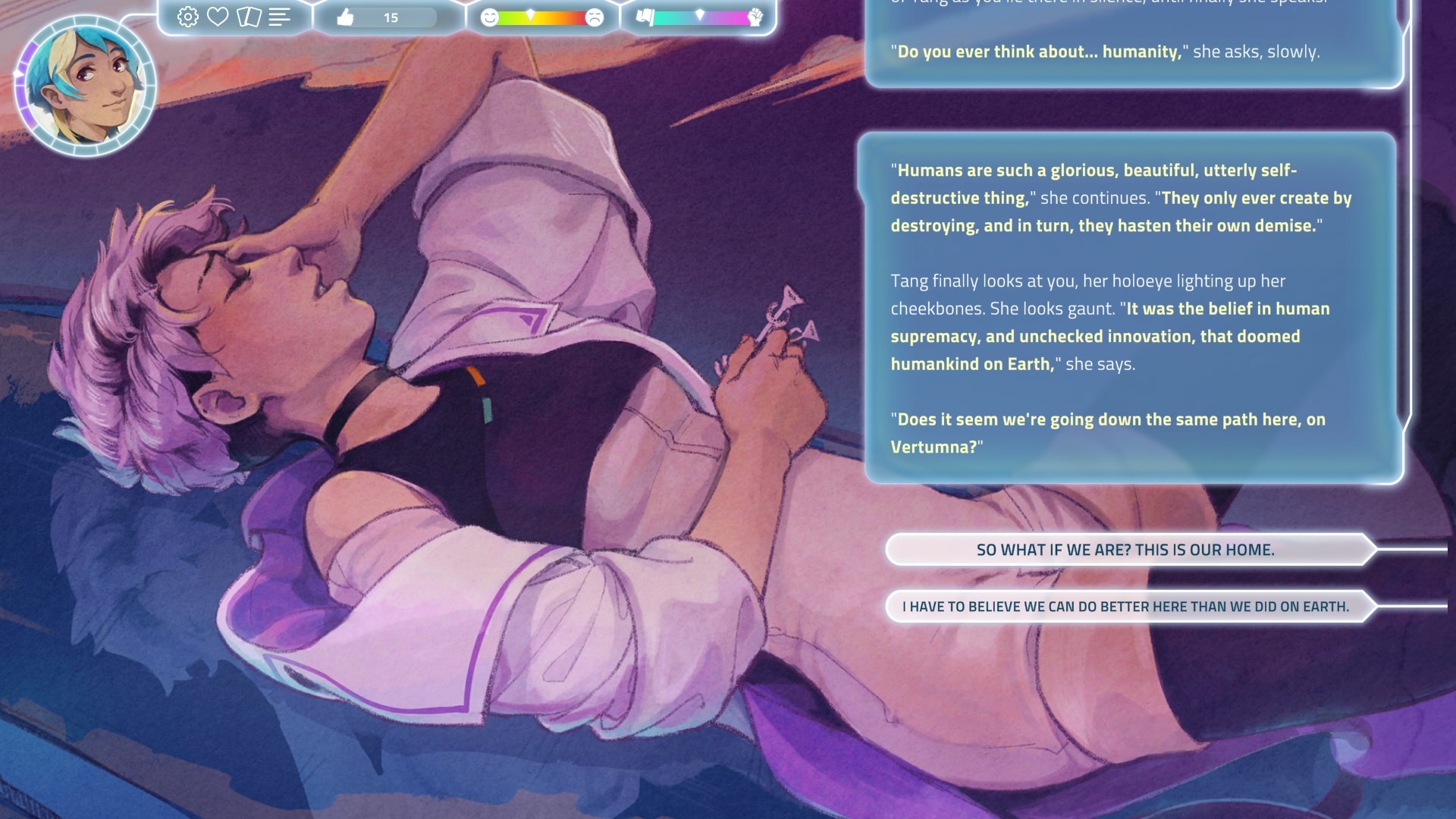This sci-fi indie RPG carries the torch lit by Persona 5
Star bound

In the classic JRPG Persona 5, each day is split up into chunks of time, and you choose how to spend them.
Do you hang out with the impetuous Ryuji or the brooding Yusuke? Do you study or practice baseball? Its structure captures the fleeting nature of time by turning it into a game mechanic. Over a year in a high schooler’s life, you build friendships, take exams, and fight off the mental demons that have taken over the teachers of your school. You know, standard day-in-the-life stuff.
I Was A Teenage Exocolonist takes that system and uses it to tell a majestic coming-of-age story in a far-future space colony, taking place over not months but years of a life.
Every month in Exocolonist you decide how you’ll spend your time. Do you play Sportsball (yes, really) and work on your Toughness, or do you knuckle down and study some engineering? Capitalizing on what made Persona 5 so distinctive, Teenage Exocolonist ties its activities to individuals.
If you study lots, you’ll likely make friends with Tangent, a young transgender woman with a penchant for engineering and mathematics. If you spend your time helping the government, you’ll have more opportunities to bond with Marz, the ambitious granddaughter of the colony’s current governor.

As you undertake different activities, storylines will unfold and challenges will present themselves. Rather than asking you to engage in turn-based RPG combat, Teenage Exocolonist deals you a hand of cards based on your character’s memories and has you play them. Assemble certain combinations and you’ll score more points.
Score more points than the challenge rating, and you’ll win. If you don’t meet the number, you can gain extra stress to “push through.” Having your character’s mental health as a resource is a brilliant choice, because it ties the narrative into the game’s systems. Become too stressed, and you’ll have no choice but to spend a month resting. Managing your stress is surprisingly challenging, since having reserves to spend on a key “push through” can, quite literally, be the difference between life and death.
Sign up for breaking news, reviews, opinion, top tech deals, and more.
It is this merging of the narrative and the mechanical that, to my mind, allows Teenage Exocolonist to stand shoulder-to-shoulder with the Persona series in the RPG space.
Looking cool, Exocolonist

Though both games are visually distinct, Teenage Exocolonist is just as committed to its futurist, cosmopolitan style as Persona 5 is to its bold jazz aesthetic. Both games take place in unique worlds with distinctive flavors.
Persona 5’s dynamic flair is more than just a veneer. It permeates every aspect of the game, from the loading screen to the soundtrack. For Persona 5, Jazz is not just the icing on the cake; it is the cake itself, and the cake is pure sugar. The sense of style makes its clinical combat mathematics more manageable, but the jazz sensibility also speaks to how you’re improvising each day, making structural choices and running with the consequences.
Though more subdued, the cosmopolitan futurism of Teenage Exocolonist is just as prevalent. In contrast to Persona 5, its soundtrack doesn’t boisterously insist upon you, but it does underscore the wonder, intrigue, and danger of life on a far-flung space colony.
The stars and us

I love the characters of Persona 5, I’ve spent hundreds of hours in their company, but Exocolonist has the edge in one important regard. Where Persona 5 provides a hetreonormative account of adolescent life in urban Japan, told from the perspective of a young man, Exocolonist is more daring. Developer Northway Games not only make a concerted effort to represent queer narratives in their game, but weave the threads of these narratives expertly into the game’s wider tapestry.
One of the main characters, Tangent, uses her own struggles with gender identity as a jumping-off point to ask wider questions about what it might mean to exceed other unjust limits imposed upon human beings by nature. Exocolonist engages in the opposite of tokenism, celebrating queer identities without being pandering or patronizing.

The original Persona 5 featured a scene where the only gay characters in the game are portrayed as predatory and creepy with the kind of crass stereotyping one might expect from a 1970s sitcom rather than a videogame from 2016. In one version of the game, they hit and and assault a teenage boy, in the updated version in Persona 5 Royal, they take him into a crossdressing bar to force him into drag.
Exocolonist’s commitment to championing the diversity of the human experience is a significant improvement. Northway games still deal with difficult themes and storylines but never does so at the expense of the player. Persona 5’s homophobic scenes threw players under the bus, while Exocolonist not only invites you onto the bus, but offers you plush seats and air conditioning.

An editor and freelance journalist, Cat Bussell has been writing about video games for more than four years and, frankly, she’s developed a taste for it. As seen on TechRadar, Technopedia, The Gamer, Wargamer, and SUPERJUMP, Cat’s reviews, features, and guides are lovingly curated for your reading pleasure.
A Cambridge graduate, recovering bartender, and Cloud Strife enjoyer, Cat’s foremost mission is to bring you the best coverage she can, whether that’s through helpful guides, even-handed reviews, or thought-provoking features. She’s interviewed indie darlings, triple-A greats, and legendary voice actors, all to help you get closer to the action. When she’s not writing, Cat can be found sticking her neck into a fresh RPG or running yet another Dungeons & Dragons game.